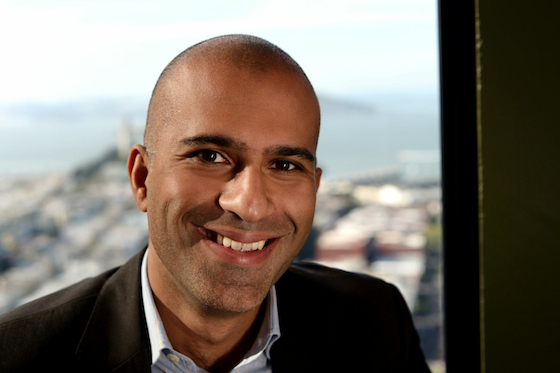 Aberdare Ventures, one of the most active investment firms in digital health, announced that Dr. Mohit Kaushal has joined as a partner. Kaushal most recently served as CSO and EVP at West Health, where he helped found the West Health Investment Fund and backed companies like Humedica, Change Healthcare, RxAnte, and goBalto. (The last two are also in Aberdare's investment portfolio.)
Aberdare Ventures, one of the most active investment firms in digital health, announced that Dr. Mohit Kaushal has joined as a partner. Kaushal most recently served as CSO and EVP at West Health, where he helped found the West Health Investment Fund and backed companies like Humedica, Change Healthcare, RxAnte, and goBalto. (The last two are also in Aberdare's investment portfolio.)
"Mo's joining is sort of a capstone of a recent aggressive period of strategic evolution for us," Paul Klingenstein, founder of Aberdare Ventures told MobiHealthNews in an interview. "Our portfolio shows that we have done things very differently in the past five years. We have been out in front of... mobile or digital health."
Klingenstein explained that Aberdare's investment strategy has changed markedly in recent years, and it's not a simple shift away from traditional life sciences companies or medical device companies in favor of digital health ones. Klingenstein explains it as a shift away from investments in companies that lead to more expensive, incrementally better healthcare to companies that provide "transformational technology" that "tie together to drive efficiency in care for the system, for the individual, and for payers."
"If you look at our portfolio today it's clear these types of companies cover the gamut: information tools to help people take their drugs, information tools to gather data in doctor's office, sensors that communicate with systems to perform analytics, and information tools to help people do clinical trials to discover drugs better," he said.
Klingenstein said their latest investments stand in contrast to the way Aberdare and others investing in healthcare have been doing it for years.
"We invested a lot of capital over long periods of time for companies to take their intellectual property, reduce it to practice, test it in animals, test it in humans, do the large studies required to get regulatory approval, and then have the monopolistic imprimatur conferred on them," Klingenstein said. "At the end of that process, when these things were shown to provide 'better care' in the fancily-structured, double-blinded, controlled trials, then there was this implicit assumption that then we would charge more for them. This still occurs. The problem is that core assumption, providing incrementally better care at a much higher price, is a much more questionable assumption than it used to be."
Klingenstein said that Kaushal is uniquely positioned to help Aberdare continue to execute on its new strategy given his experiences as an investor, an MD, and a policy person. Prior to West, Kaushal was the director of connected health at the FCC. Before that he worked at Polaris Venture Partners.
In the past four or five years Kaushal has seen a number of important changes in the digital health landscape.
"I have definitely seen teams get better," Kaushal told MobiHealthNews. "Let's just call the early companies 1.0 for the sake of no argument. The first versions of [digital health] startups were technology-heavy. For example, the teams coming out of Silicon Valley were great technology teams, great designers, but healthcare is an extremely complicated ecosystem with all sorts of nuances, perverse incentives, and asymmetrical incentives. So, great technology doesn't always get adopted in healthcare. As I see 2.0 and 3.0 companies grow and emerge, I see technologists getting paired with folks who really understand the ecosystem and how business models in healthcare really work."
Kaushal also pointed out two other recent trends: increased clarity around health reform and a slight uptick in digital health exits. He has seen an uptick in acquisitions in recent years, but, of course, not as many as he'd like to see, he said.
"We are seeing a lot more activity," he said, "and payers have bought a lot of things -- not just startups -- but other plans and systems to get scale. That makes sense to me: The strategy is to get the foundations in place to be able to deliver better managed care before intermingling all the technology."


















